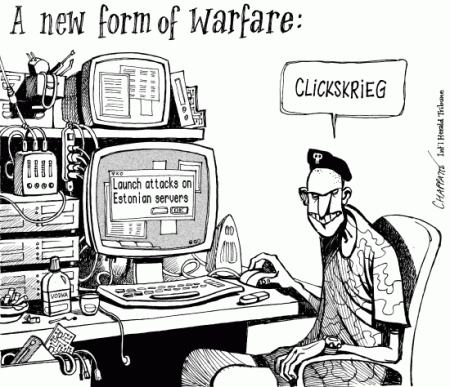
Since the beginning of renewed unrest and protests in Tunisia, the ‘hacktivist’ group Anonymous has joined in support of the actions of Tunisians hacktivists by blocking some Tunisian websites.
As they say on one of their websites, Anonymous has entered the fight in Tunisia because “The arrests of several free speech activists and bloggers in recent days was deplorable. The punishing of people for simply expressing themselves politically was vile.” They also claim to be a “legion” that “cannot be stopped with the arrests of a few.” Or as one of the member of the group put it: “Tunisians can fight on the streets and Anonymous can’t. Anonymous can fight online but Tunisians can’t.”
This global “cyber-solidarity” with Tunisia is not surprising. The internet is a global good that is being used the world over. Moreover, it is not dangerous or particularly risky for people outside Tunisia to block government’s website there via Denial of Services (DDoS) attacks. It also makes sense for the “legion” of Anonymous hackers to be active in Tunisia as a way to promote free speech, free information and citizen-journalism. It is a globally visible, potentially effective and cheap way for this new breed of cyberactivists to make their mark on an issue that matters.
Some say that DDoS attacks like these are simply the cyber-version of doing a sit-in in front of a bank or a governmental building to make sure no one enters it. Although I disagree with this metaphor because doing a sit-in requires more political and organizational will than just clicking on a button on your computer, the mass of foreign hacktivist involved in Tunisia through groups such as Anonymous do believe they are showing solidarity with the Tunisian people and acting in accordance.
I had the chance to quickly chat with some of the Anonymous hacktivists on their channel, and many said that they believed that they have won a victory by forcing the Tunisian government to restrict the access to their website to Tunisians only. Anonymous are now moving to disrupt the e-mail accounts of government employee in an attempt to reduce their internal communication.



